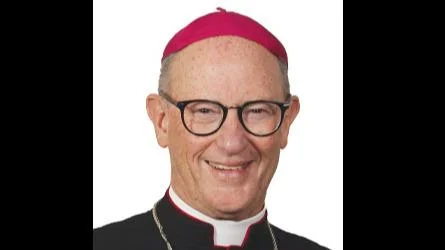
Rev. James D. Conley, D.D., S.T.L. | Diocese of Lincoln website
Confirmation in the Catholic Church is celebrated at different ages, depending on various traditions and regulations. The Code of Canon Law for the Latin Catholic Church states that “to receive confirmation licitly outside the danger of death requires that a person who has the use of reason be suitably instructed, properly disposed, and able to renew the baptismal promises (CIC 889 §2).” What constitutes being “suitably instructed” is determined by each diocesan bishop, while being properly disposed and able to renew baptismal promises are requirements rooted in sacramental theology.
The requirement that candidates have reached the age of reason is specific to the Latin Catholic Church and is not considered fundamental to Confirmation itself. In contrast, Eastern Catholic Churches usually confirm infants at baptism, which reflects their own heritage. The Latin tradition delays Confirmation until around age seven or older, emphasizing preparation before receiving the sacrament.
This difference in practice leads to variation among dioceses. In 2001, the National Conference of Catholic Bishops—now known as the United States Conference of Catholic Bishops (USCCB)—established that “the Sacrament of Confirmation in the Latin rite shall be conferred between the age of discretion and about sixteen years of age, within the limits determined by the diocesan bishop and with regard for the legitimate exceptions given in canon 891.” This policy allows bishops significant discretion regarding when Confirmation occurs within their diocese.
Some bishops choose to confirm closer to age sixteen so candidates can be better prepared; others prefer earlier confirmation so young people can benefit from its graces during adolescence. Catholics are expected to follow their bishop’s decision on this matter.
Another factor influencing timing is that in the Latin Catholic Church, only bishops are ordinarily permitted to administer Confirmation. This tradition aims to maintain a direct connection between bishops and their parishes.





 Alerts Sign-up
Alerts Sign-up